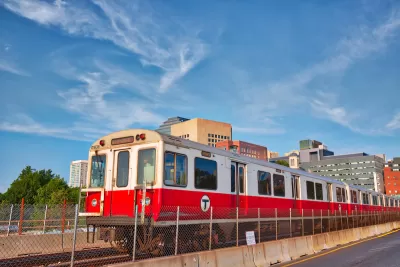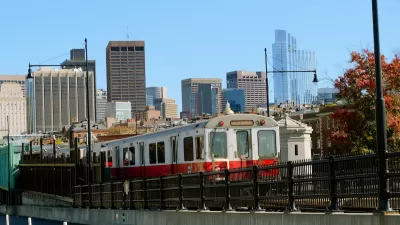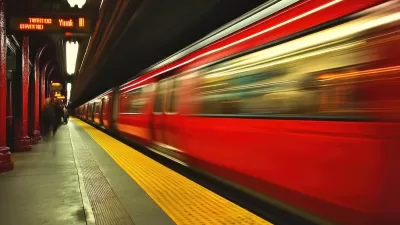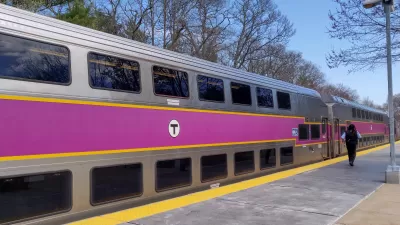The ‘T’ is reworking its schedule to offer more reliable and flexible service, including more midday and weekend trains.

Boston’s commuter rail system has recovered as much as 96 percent of pre-pandemic ridership, reports Daniel C. Vock in Route Fifty, far outpacing most commuter rail agencies around the country.
“There are a lot of factors at play, but one that sets Boston apart is the extent to which it has reworked its service to better serve people traveling in the middle of the day, in the evening and on weekends.” Boston’s success validates the growing movement to readjust transit schedules and routes to better serve post-pandemic transportation needs. In many cases, these needs were already there, borne by largely ignored groups such as transit-dependent working women with children.
The Massachusetts Bay Transportation Authority (MBTA) owns 12 commuter rail lines that span almost 400 miles. “Significantly, it owns most of those tracks, while many other commuter rail agencies have to use tracks owned by freight railroads for all or most of their routes.”
According to the MBTA, “The goal is to get trains on a clock-face schedule, so people know what time their trains will leave—say, 10 minutes past the hour—without having to look it up.” The agency is also adding more trips, particularly during midday and nights and weekends.
FULL STORY: Boston-area commuter rail bounces back, while other agencies lag

Planetizen Federal Action Tracker
A weekly monitor of how Trump’s orders and actions are impacting planners and planning in America.

Congressman Proposes Bill to Rename DC Metro “Trump Train”
The Make Autorail Great Again Act would withhold federal funding to the system until the Washington Metropolitan Area Transit Authority (WMATA), rebrands as the Washington Metropolitan Authority for Greater Access (WMAGA).

The Simple Legislative Tool Transforming Vacant Downtowns
In California, Michigan and Georgia, an easy win is bringing dollars — and delight — back to city centers.

DC Backpedals on Bike Lane Protection, Swaps Barriers for Paint
Citing aesthetic concerns, the city is removing the concrete barriers and flexposts that once separated Arizona Avenue cyclists from motor vehicles.

In These Cities, Most New Housing is Under 441 Square Feet
With loosened restrictions on “micro-housing,” tiny units now make up as much as 66% of newly constructed housing.

Albuquerque’s Microtransit: A Planner’s Answer to Food Access Gaps
New microtransit vans in Albuquerque aim to close food access gaps by linking low-income areas to grocery stores, cutting travel times by 30 percent and offering planners a scalable model for equity-focused transit.
Urban Design for Planners 1: Software Tools
This six-course series explores essential urban design concepts using open source software and equips planners with the tools they need to participate fully in the urban design process.
Planning for Universal Design
Learn the tools for implementing Universal Design in planning regulations.
Smith Gee Studio
City of Charlotte
City of Camden Redevelopment Agency
City of Astoria
Transportation Research & Education Center (TREC) at Portland State University
US High Speed Rail Association
City of Camden Redevelopment Agency
Municipality of Princeton (NJ)





























